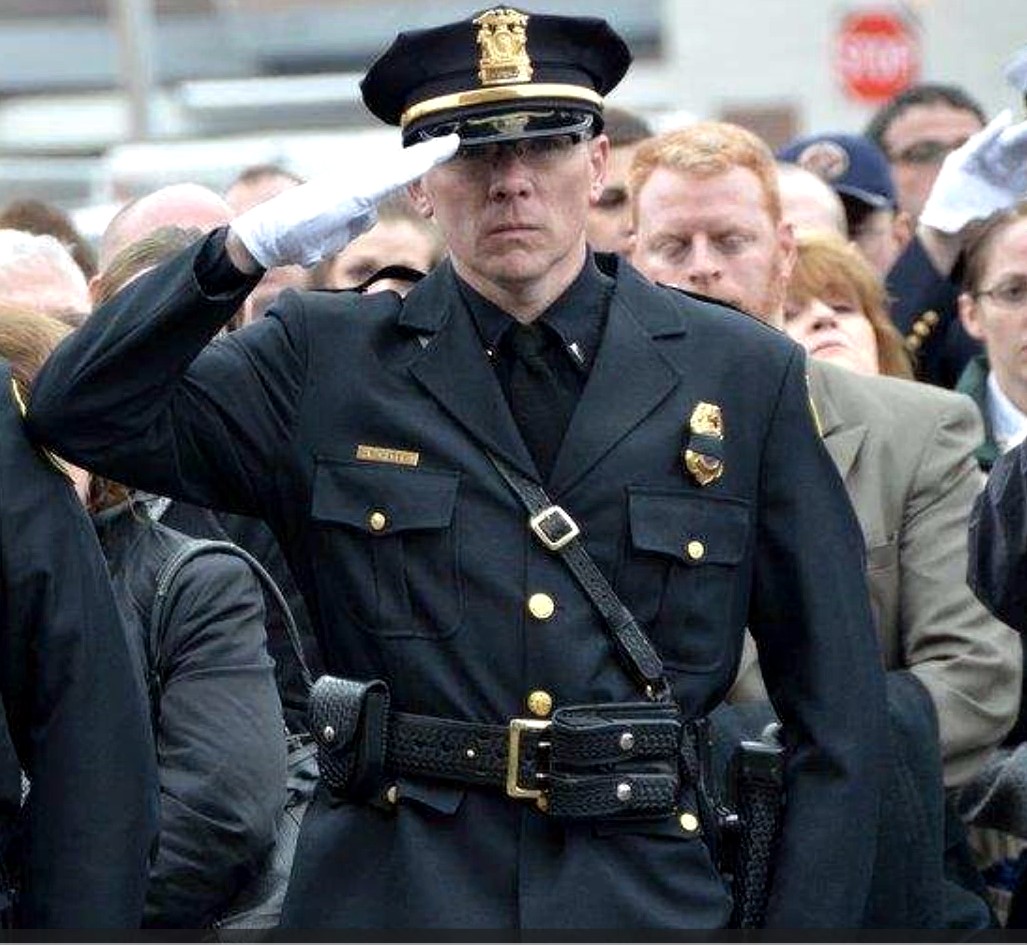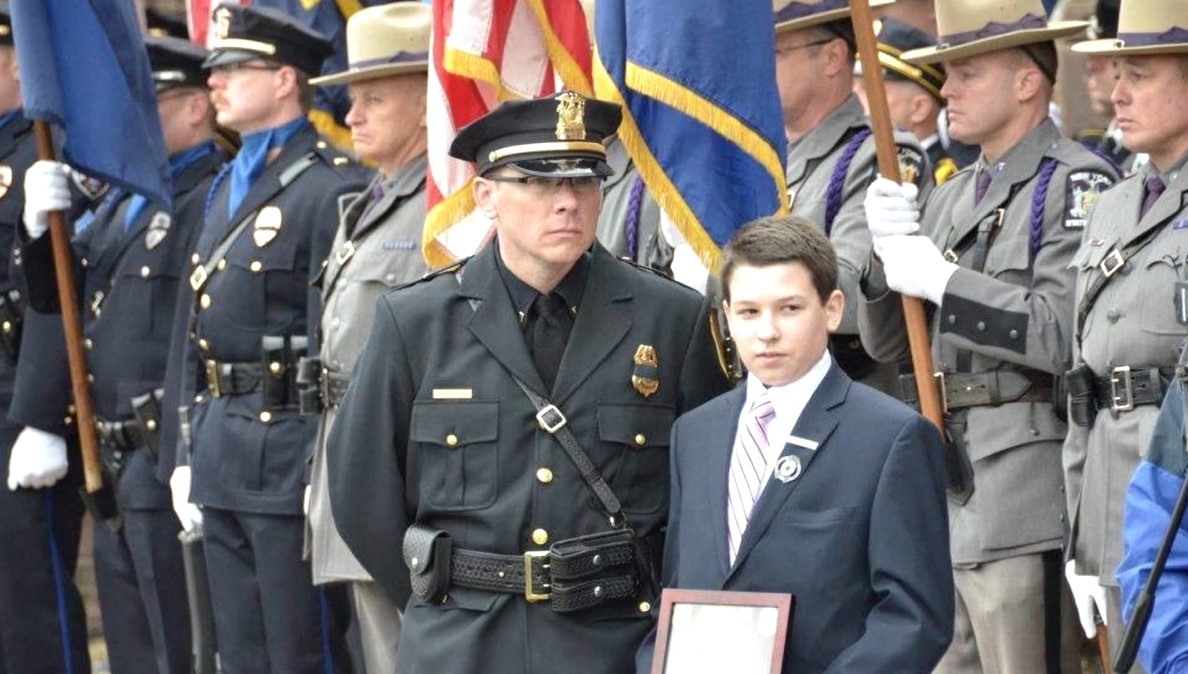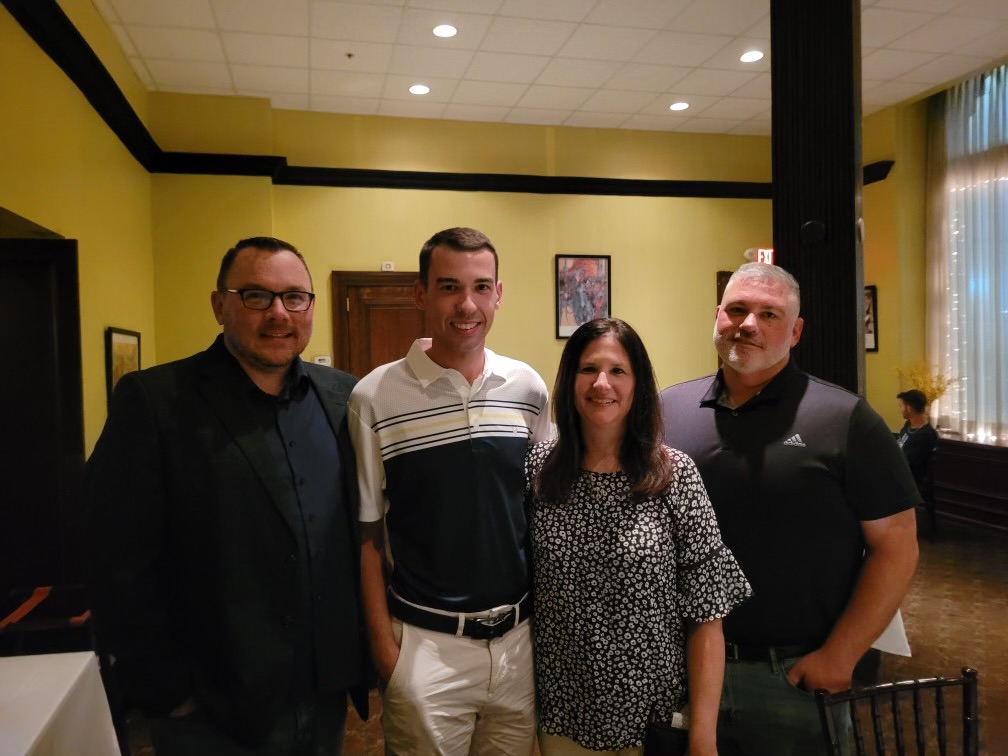March 31, 2014, is a date etched in my memory. At the time, I was a Lieutenant with the Johnson City Police Department in New York. That morning, while off-duty, I got a call around 8 a.m. asking me to come in. Officer David Wayne Smith—“DW” to those of us who knew him—had been tragically shot and killed.
Officer Smith was born and raised in the Johnson City community. He loved it so much that he spent his 18-year career serving it as a JCPD officer. Officer Smith was so personable, building relationships with those he worked with and interacted with on the job—something that is especially hard to do when interactions with police oftentimes stem from bad situations or incidents.
There’s no training that prepares you to hear that your colleague and friend has been killed. It’s every officer’s worst nightmare, and when it happens, you drop everything, go where you’re needed, and do whatever you can.
When I got to the scene, I was met with something we see every day: flashing lights, crime scene tape, and officers from multiple agencies—it just hit harder because it was one of my own. The scene was heavy and grim. His patrol car was riddled with bullet holes and broken glass, and everyone was making phone calls, some for backup and others to assure loved ones that they were okay.
Then my phone rang. It was a fellow officer from three hours away, calling to check on me. He reminded me—without realizing it—that it had been exactly ten years to the day since the line-of-duty deaths of Bradford County Deputies Michael Van Kuren and Christopher Burgert on March 31, 2004. When I told him where I was, we both fell into a stunned silence. The call ended with unspoken respect—a bond only those who’ve experienced loss in uniform can understand.

Soon after the tragedy, I was asked to serve as one of the family liaison officers for Officer Smith’s family. When I arrived at the emergency room, nurses, doctors, firefighters, paramedics, and fellow officers were all standing in quiet solidarity. As I got closer to Officer Smith’s room, a nurse, visibly shaken but kind and composed, asked if Officer Smith looked “okay” enough for his family to see him. That moment still haunts me. Who was I to make that decision? But in the end, we did what needed to be done so his wife, young son, parents, and brother could all say goodbye.
As the family entered the hospital room, the grief was overwhelming. Another officer and I supported them with compassion and made it clear that they would not be alone.
I shared my responsibilities of being Officer Smith’s family liaison with another officer. He stayed with Officer Smith’s parents, and I stayed with his wife and 11-year-old son. That structure helped us care for both parts of the family and allowed us to check in on each other.
It’s difficult to grasp what it means to be a Family Liaison Officer until you are in it. You think you know—but you don’t. My fellow officer and I both attended the Concerns of Police Survivors (COPS) Traumas of Law Enforcement Training. That training helped prepare us for the task, but nothing could prepare us for the weight of what would come or the long-lasting role we would play in this family’s life.
As a Family Liaison Officer, you become the bridge between the grieving family, the police department, and the community. For days, you're with the family 18–20 hours a day. You take on many roles—supporter, information sharer, fixer, and organizer. Your personal grief is set aside because you’re the one holding it together for them. You guide the family through this unthinkable time, and your fellow officers. They lean on you and watch how you take each step.
It’s essential, though, that through the caretaking and duties, Family Liaison Officers make space to process their own grief. Whether it’s talking to a therapist, a colleague, a religious advisor, or attending debriefings, it’s crucial you find your outlet. Bottling it up will only lead to pain down the road. Recognize that it’s okay to not be okay. Losing an officer hurts, and you must allow yourself, like everyone else, time to process that in a way that works for you.


It’s important to note that being a Family Liaison Officer isn’t a short-term role—it doesn’t end after a funeral. Sometimes, it becomes a lifelong bond. For me, it did. That’s what Officer Smith’s family wanted, and my own family supported that. I went on fishing trips with his son, helped decorate their home for Christmas, attended Police Week, and was invited to birthdays, graduations, and even attended funerals with them.
Over time, “liaison” and “officer” faded away. What was left was just family and friendship.
Not every liaison experience turns out this way. Mine did because it’s what Officer Smith’s family wanted—and because I had support.
One of the most important things I learned is that you don’t have to carry the whole weight yourself. You are not alone. You are representing your agency, and there are people ready and willing to help if you ask. People want to help; they just don’t always know how. That’s part of the liaison officer’s role—facilitating support without taking it all on their own shoulders.
Above all else, remember: Being a family liaison officer is not about you. It is about honoring the fallen officer and their family. Support them, show up, and uphold their wishes. If you do that, the family will remember the way they were cared for during the worst time of their lives—and they’ll often carry that gratitude forever.
